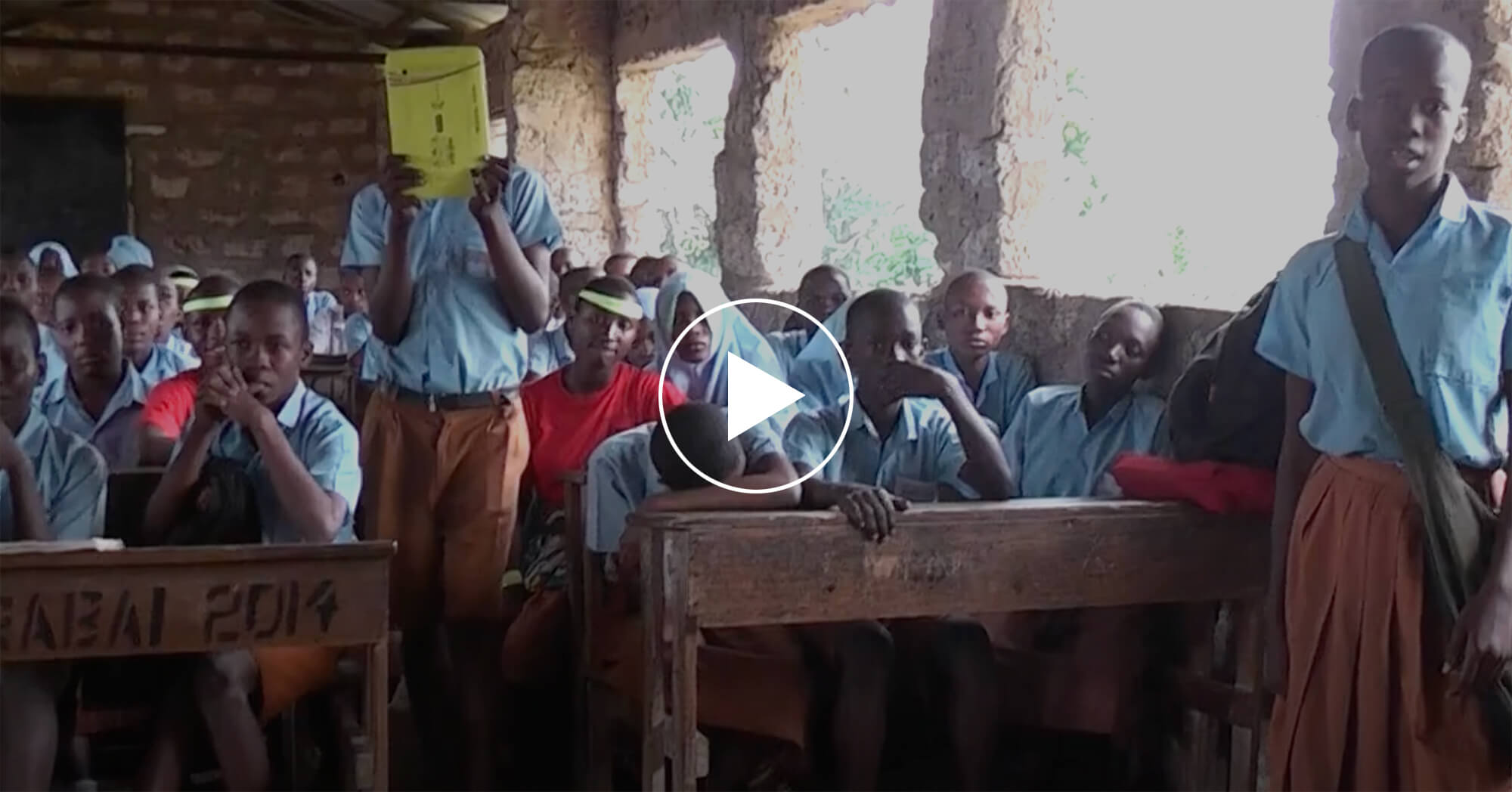WE OFFER A HAND UP, NOT A HAND OUT
The Mwezi Foundation (‘mwezi’ means ‘moon’ in Swahili) is a small UK-registered charity, set up in 2014, which provides free portable solar lights to rural primary schools in the Kilifi and Kwale counties of south-east Kenya. These lights enable pupils living in very remote, disadvantaged circumstances – with no electricity at home – to do their homework in the evenings, thereby boosting their educational attainment and life chances.
We have designed these unique lights ourselves, to withstand the rigours of the Kenyan climate and constant use by active children. We assemble them in our own workshop near Mombasa, and donate them to carefully-chosen partner schools. The schools then loan them to pupils overnight, so they can do their homework; and, when homework is completed, other family members can also use the light that evening. Each light is often shared between two or more pupils over the course of the year, and at the end of the academic year all are collected in and made ready for the next cohort. With careful management each light lasts several years – helping at least 10 children, and their families, over a 5-year period.
“The foundation of every state is the education of its youth.”
Diogenes
BENEFITS OF MWEZI LIGHTS
Our lights have numerous positive impacts right across the community:
Education as a route out of poverty
Boosting girls’ education and avoiding harm
Building self-confidence and motivation – for both pupils and teachers
Health and environmental benefits
Benefits across the community
HOW WE WORK
The Mwezi Foundation is run by a small group of dedicated trustee directors who give their time entirely for free. We employ four full-time staff in Kenya (two technicians and two schools managers), and a part-time UK-based fundraiser for a few hours each week. We also have a small group of dedicated volunteers who generously give their time to support various aspects of our work.
‘Co-production’ with beneficiary communities
Our operational model represents a true partnership between the Mwezi Foundation, schools and pupils. We select schools which are motivated to look after the lights and to work with us. Teachers retain discretion over how they share out the lights to deliver maximum benefit to pupils, and they also motivate students to make best use of their homework time. Pupils, meanwhile, bring enormous enthusiasm, commitment and hard work to their studies – and see the results in rising test and exam scores.
Full lifecycle support for our lights – and our schools
We are here for the long term. Once a partnership with a school is in place, we offer a level of support which we believe is unique among solar light distributors, at no cost to the school: regular visits, repair and replacement of lights if necessary, motivational talks for pupils, support groups for teachers, and comprehensive tracking of academic results. This intensive approach not only embodies our values, but also safeguards our lamps. As a result, they last for years, well beyond the industry norm, which helps us maximise funders’ money, support many more children, and minimise our environmental footprint.
A DAY IN THE LIFE OF OUR KENYAN TEAM
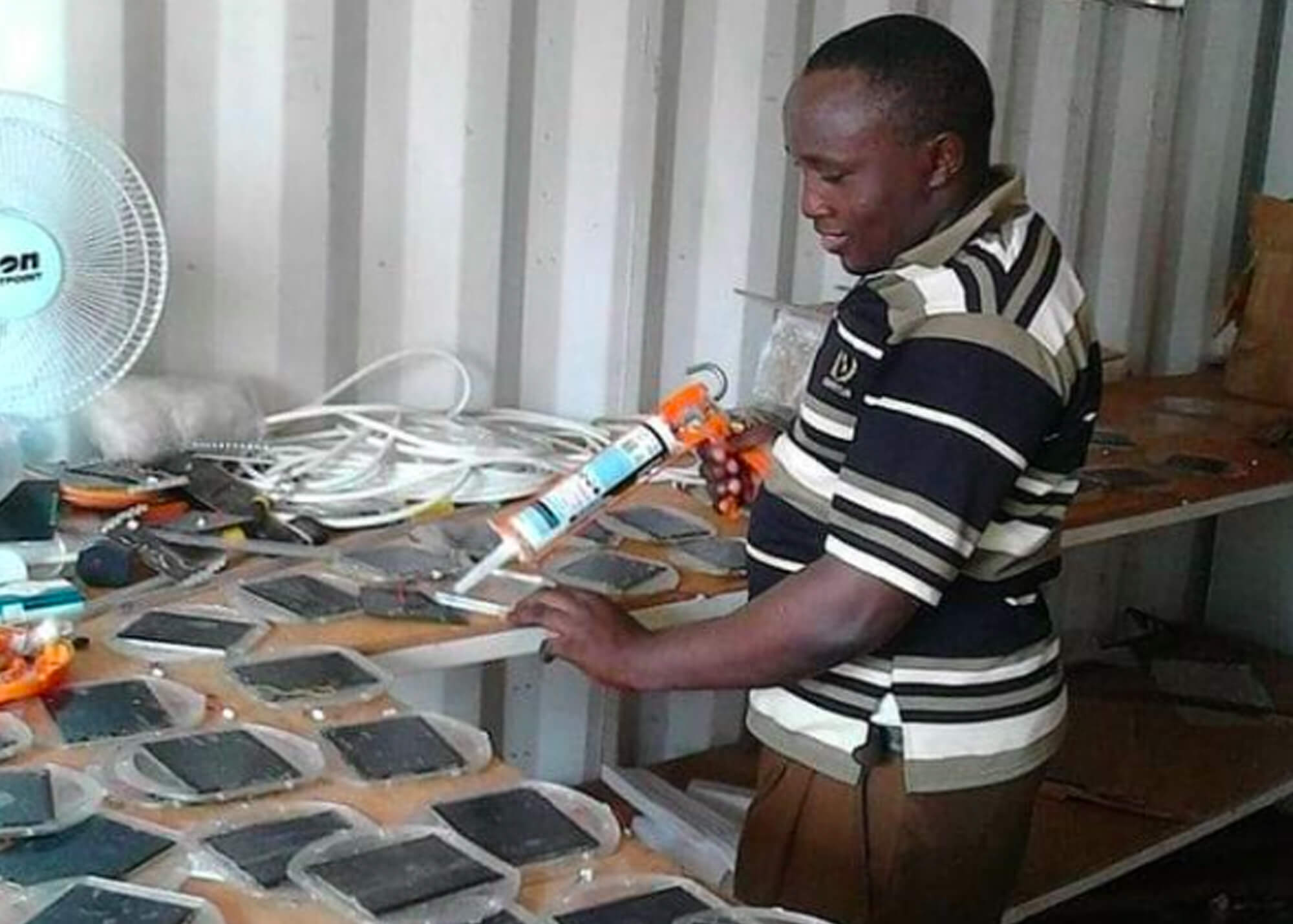
1.
John and David, our technicians, manufacture lights and prepare the lights which are going to be donated or substituted that day. In advance of the day, the schools managers will have contacted the 5-6 schools they are going to visit, to find out how many broken lights they have and confirm numbers of children in the classes receiving lights. In 2024 we are focusing on Grade 6 (approx. 11 years old) and Grade 8 (approx. 14 years old).
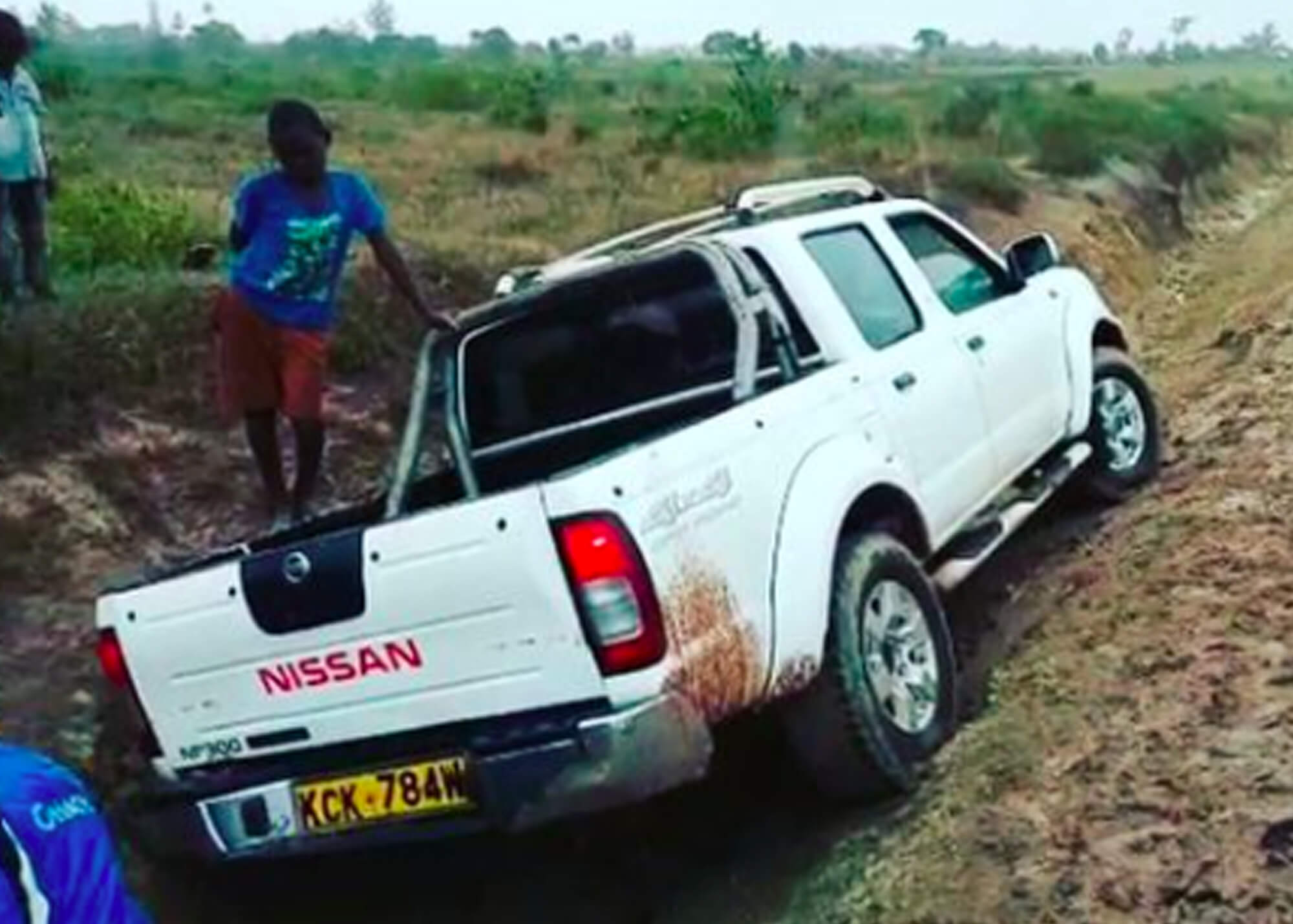
2.
Our schools managers, Julia and Antony, travel to a cluster of six of our schools. Sometimes, weather conditions can make travel very difficult. The photo above was taken when the car Julia was travelling in got stuck in the mud! Thankfully, some villagers helped get it going again, and Julia still managed to visit three schools that day.
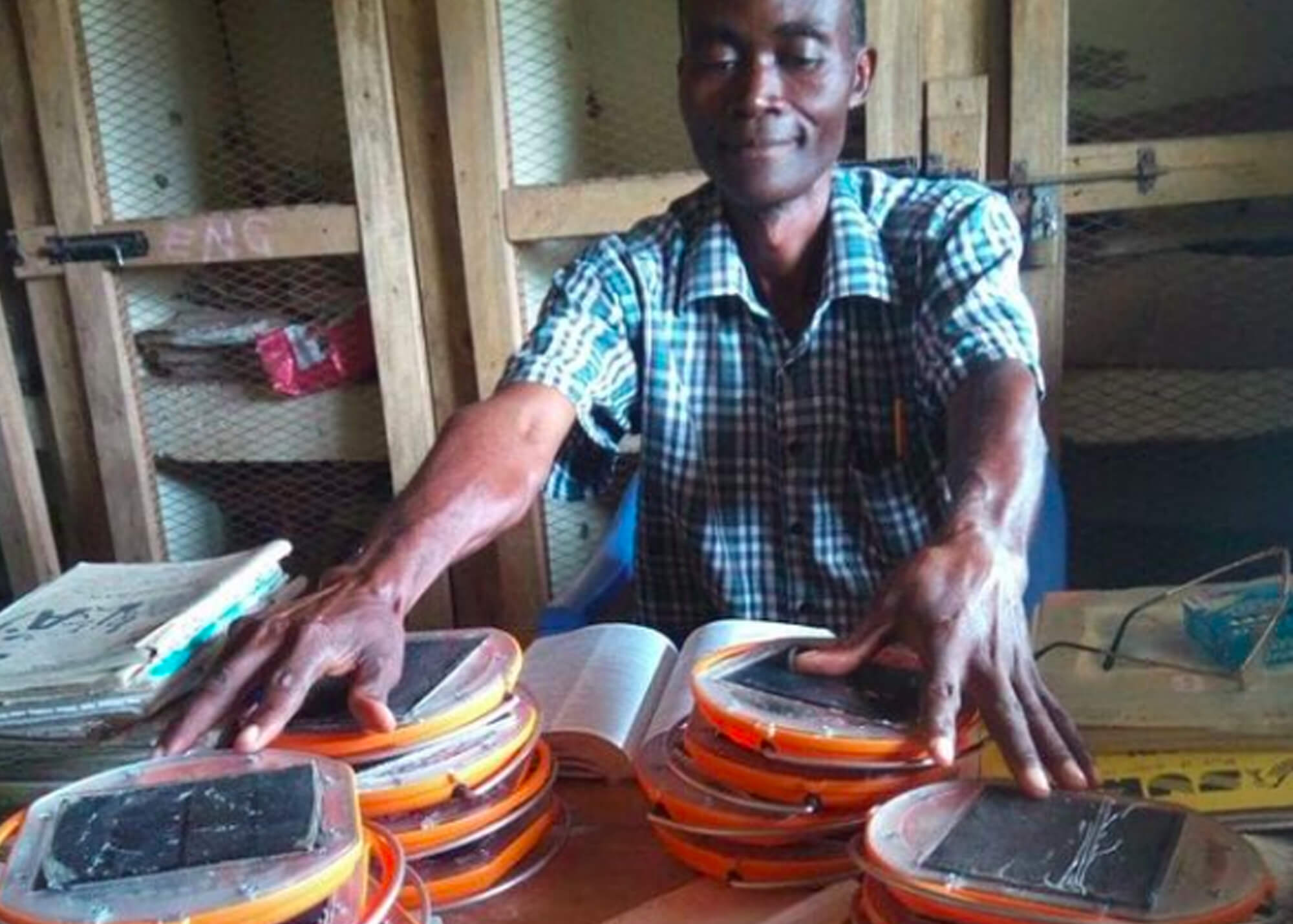
3.
The schools manager arrives at the schools that they are visiting. They greet the teachers and meet the students. Then, they donate or swap some Mwezi solar lights, taking away any broken ones which need to be repaired. In the photo above, Mr Kennedy from Kikonde Primary School is receiving a light library (which usually consists of 12 solar lights).
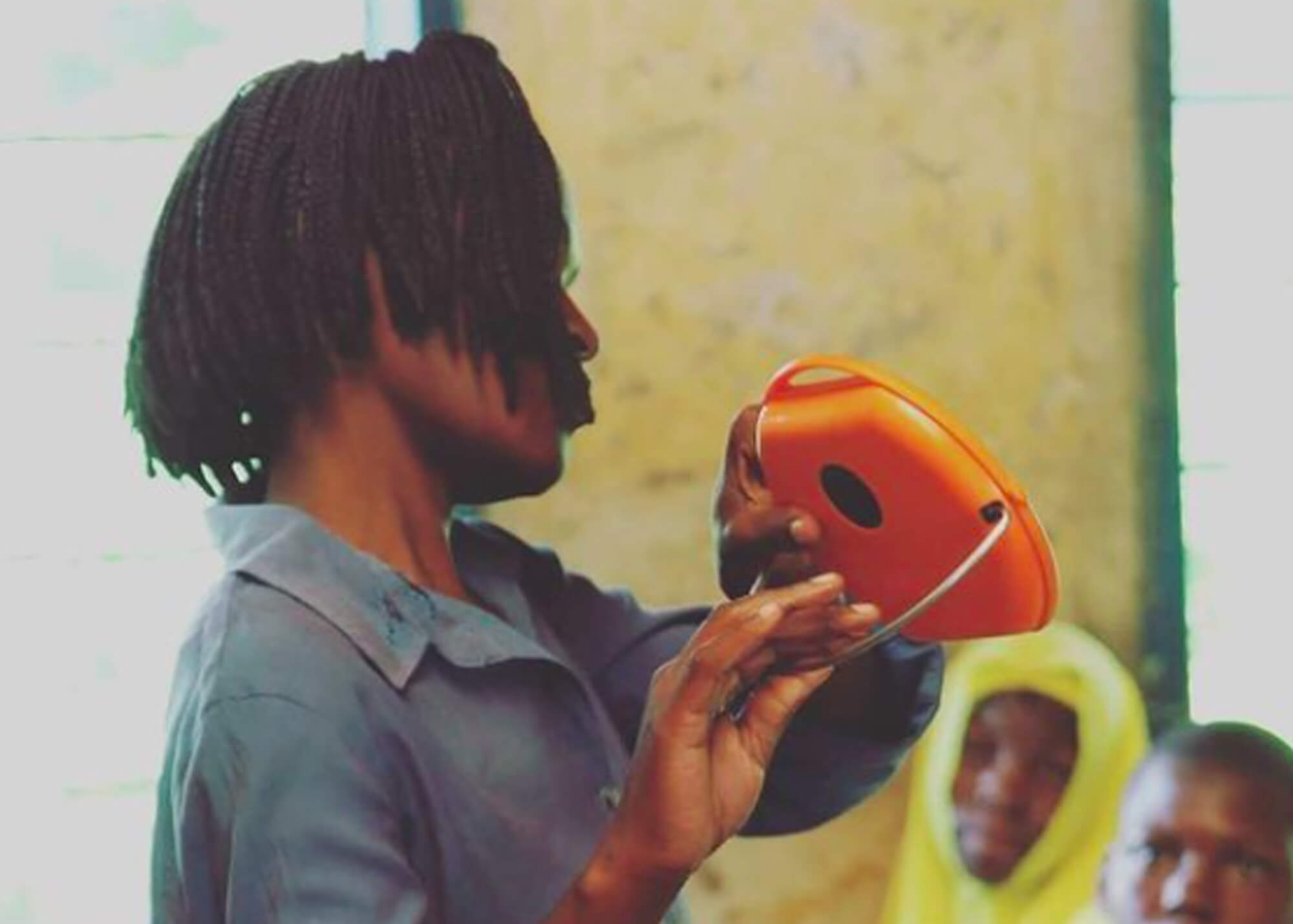
4.
The schools manager teaches the class how to use (and take care of) their solar lights.
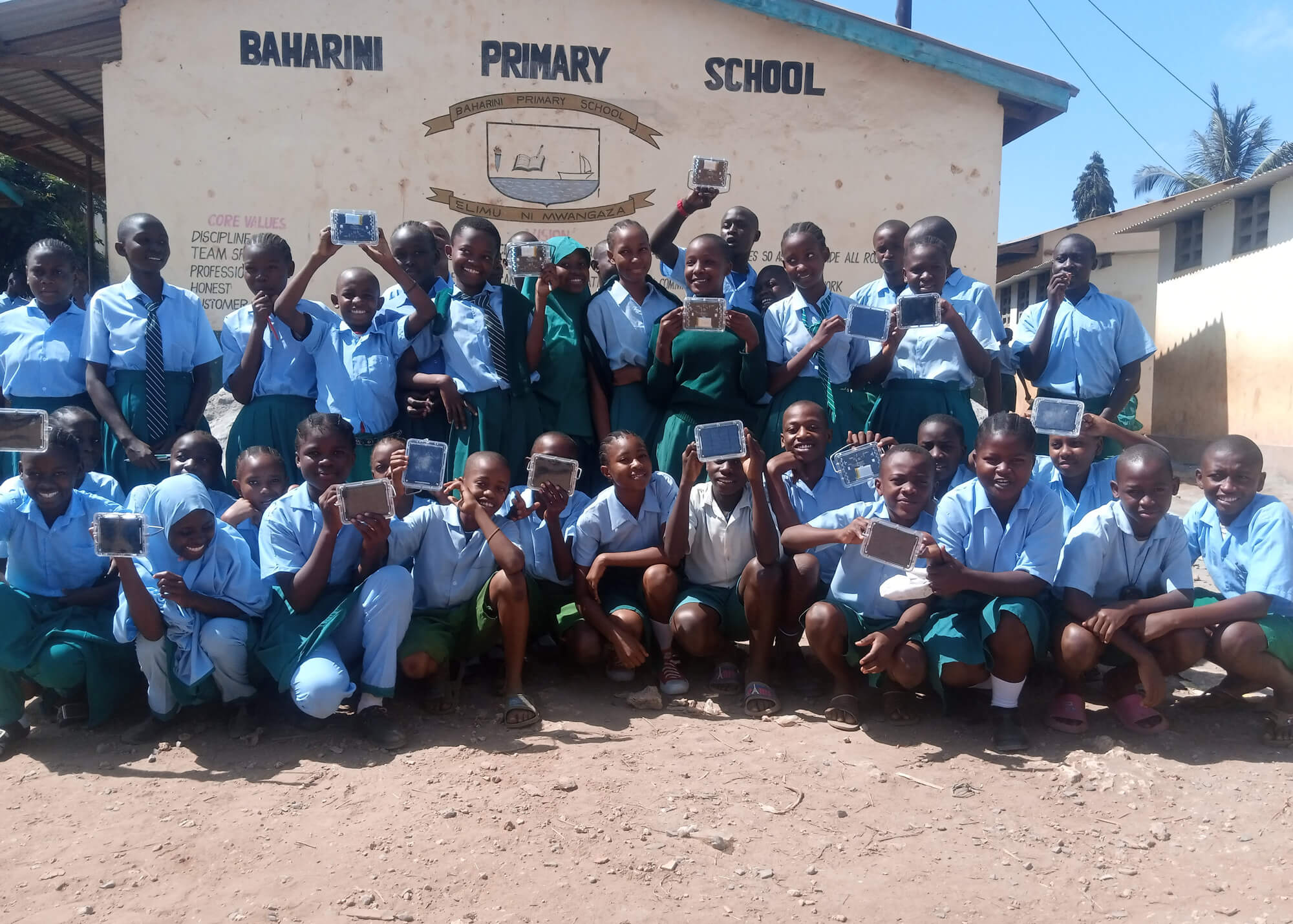
5.
Now it’s time to take some group pictures of the class with their new Mwezi lights!
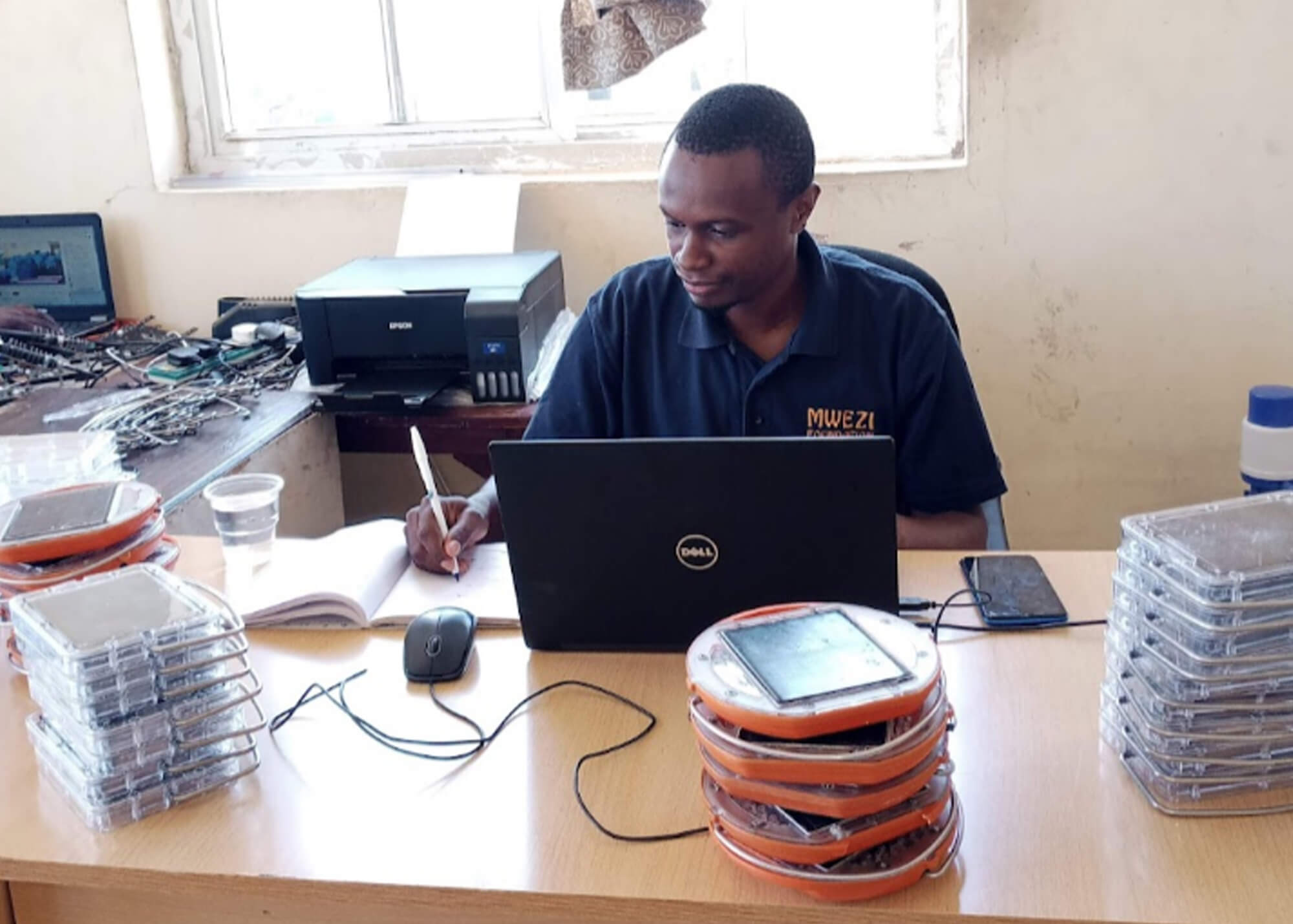
6.
After returning to the office, the schools managers capture all the data in reports, including how many lights the schools they have visited have received and how many broken ones have been swapped. They enter the information on the master sheets and update their visit spreadsheet.
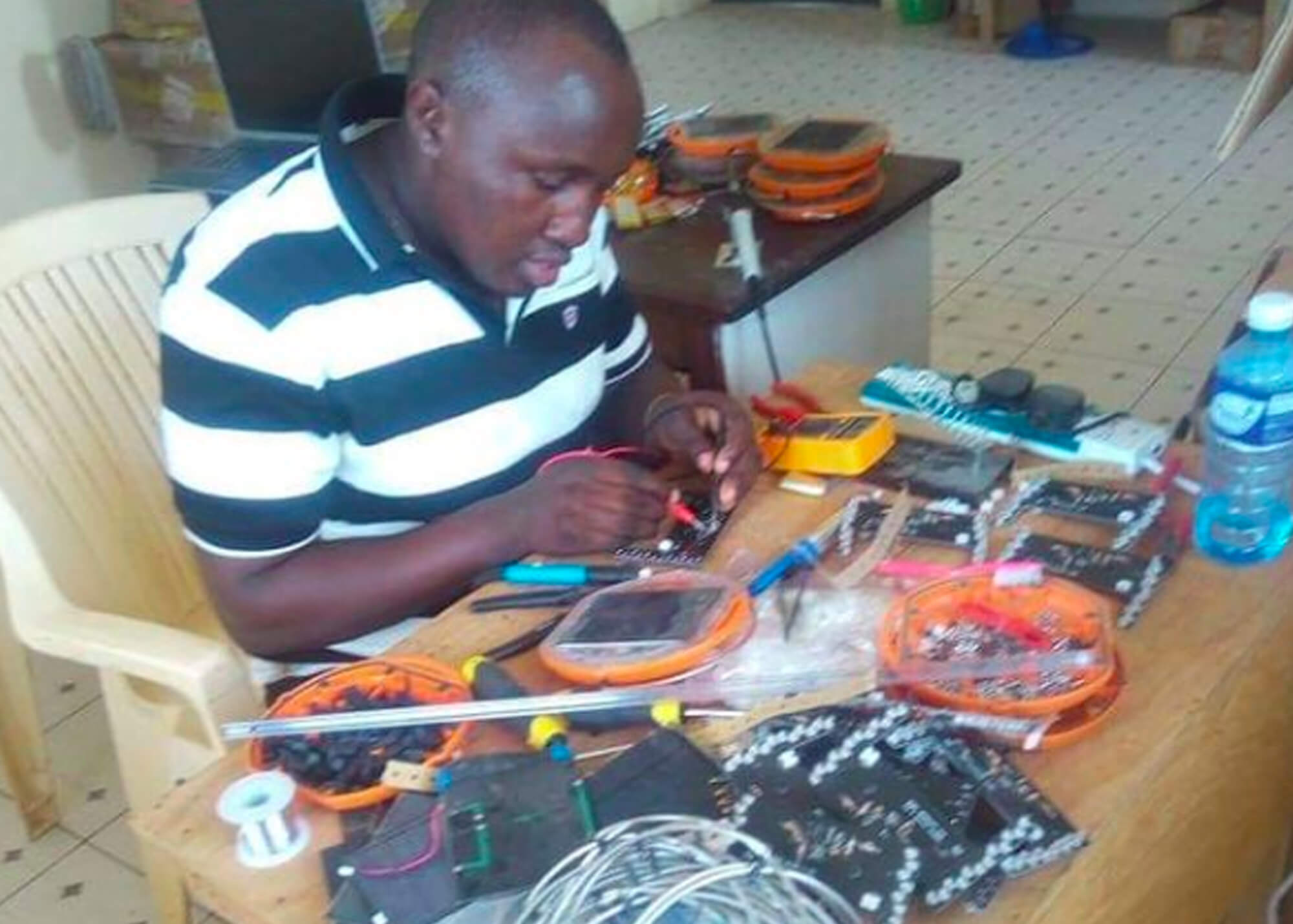
7.
John and David get to work assessing the lights which have been returned, ready to fix them and redistribute them.


